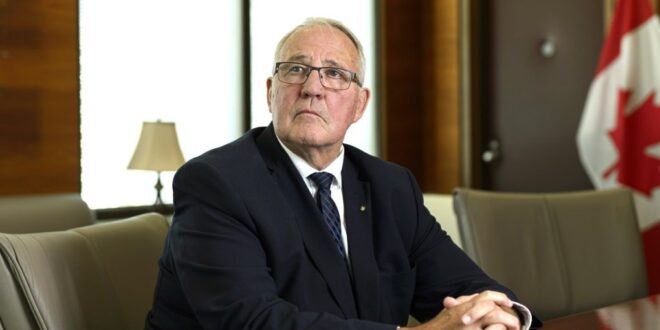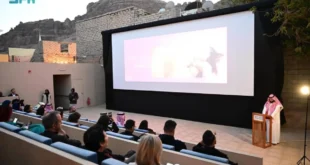Published Aug. 5, 2023 7:17 a.m. ET
Sarah Ritchie
The Canadian Press
Minister of National Defence Bill Blair Settles into New Role at National Defence Headquarters
As Bill Blair assumes his position as Minister of National Defence in Ottawa’s National Defence headquarters, he feels at ease and ready to tackle the challenges ahead. Having previously held ministerial roles in border security, organized crime reduction, public safety, and emergency preparedness, Blair has had plenty of experience working closely with the military.
In an interview, Blair stated his commitment to providing the military with the necessary support, resources, training, and equipment required to serve Canadians effectively. His appointment came as a surprise following Anita Anand’s departure, a departure which led to questions about the optics of replacing a woman of color with a 69-year-old man. However, both Anand and Blair expressed confidence in his ability to lead due to his extensive experience in managing large organizations.
Blair highlighted his role as the Chief of Toronto Police Service from 2005 to 2015, during which they successfully created one of the most diverse police services in Canada and North America. However, this emphasis raised concerns among individuals closely observing the military’s ongoing efforts to address its culture and issues of sexual misconduct.
Charlotte Duval-Lantoine, a fellow at the Canadian Global Affairs Institute who wrote a book on toxic military culture, pointed out that diversity alone does not necessarily lead to culture change. She compared it to the integration of women into the military in the 1990s, where their contributions were undervalued and not fully recognized. Duval-Lantoine emphasized the need for substantial cultural transformation rather than just increasing diversity.
Blair’s tenure as the Chief of Toronto Police Service was not without controversy. A 2020 report by the Ontario Human Rights Commission revealed systemic racism within the police force, with Black residents more likely to experience harm or death from police encounters. Despite some positive changes, there was still evidence of racial profiling. Alok Mukherjee, the police services board chair at the time, stated that while Blair made efforts, he was not prepared to fully embrace the necessary transformative change as directed by the community.
Blair defended his actions, asserting that the Toronto Police Service had instituted significant changes to their recruitment, employment, and training systems. He denied any tolerance for systemic discrimination during his tenure. However, Mukherjee believes that true change can only happen if Blair is willing to challenge the military’s top brass and confront deeply ingrained traditions and resistance to change.
Apart from addressing cultural issues, Blair faces additional challenges within the Armed Forces. The military is grappling with a personnel shortage, with over 16,000 vacant positions. To address this crisis, the recruitment process is being revamped and the basic training program overhauled. Furthermore, aging equipment, a slow procurement process, and donations for the defense of Ukraine have resulted in reports of soldiers purchasing better gear independently and criticism from international allies regarding Canada’s commitment to NATO spending targets. In addition, the Armed Forces is being increasingly called upon to respond to natural disasters such as floods, fires, and hurricanes across the country.
Despite the hurdles, both Duval-Lantoine and Mukherjee express their support for Blair in his new role. They acknowledge the importance of continuity and stability in pursuing cultural change within the military and hope that Blair can establish strong relationships and build trust as he tackles the myriad challenges ahead.
 Mind Uncharted Explore. Discover. Learn.
Mind Uncharted Explore. Discover. Learn.



